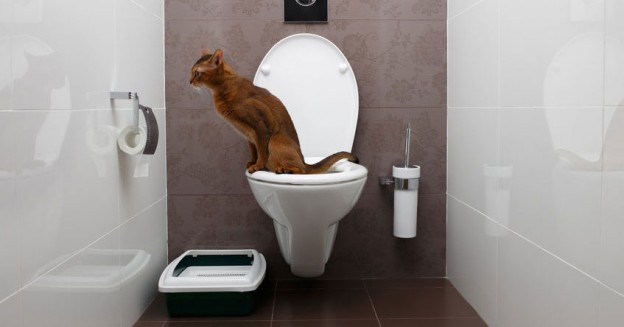Never Flush Cat Poop Down Your Toilet - Safeguard Your Pipes System
Never Flush Cat Poop Down Your Toilet - Safeguard Your Pipes System
Blog Article
The writer is making several good points relating to How to Dispose of Cat Poop and Litter Without Plastic Bags in general in this great article further down.

Intro
As feline proprietors, it's vital to bear in mind exactly how we deal with our feline friends' waste. While it might seem practical to flush pet cat poop down the toilet, this technique can have destructive repercussions for both the atmosphere and human health and wellness.
Ecological Impact
Flushing pet cat poop presents unsafe virus and bloodsuckers right into the water supply, posturing a considerable risk to marine ecological communities. These contaminants can negatively affect marine life and concession water top quality.
Health and wellness Risks
Along with ecological issues, purging feline waste can additionally present health risks to humans. Pet cat feces may include Toxoplasma gondii, a bloodsucker that can cause toxoplasmosis-- a possibly extreme disease, particularly for expecting ladies and people with damaged immune systems.
Alternatives to Flushing
Luckily, there are more secure and much more liable methods to get rid of cat poop. Take into consideration the complying with choices:
1. Scoop and Dispose in Trash
The most typical method of disposing of feline poop is to scoop it into a naturally degradable bag and toss it in the trash. Make sure to make use of a devoted clutter inside story and get rid of the waste without delay.
2. Use Biodegradable Litter
Choose naturally degradable pet cat clutter made from products such as corn or wheat. These litters are environmentally friendly and can be securely dealt with in the trash.
3. Bury in the Yard
If you have a lawn, think about burying cat waste in a designated area far from veggie yards and water resources. Make certain to dig deep enough to prevent contamination of groundwater.
4. Mount a Pet Waste Disposal System
Buy a pet dog waste disposal system specifically designed for feline waste. These systems use enzymes to break down the waste, reducing smell and environmental effect.
Verdict
Accountable pet dog possession expands past offering food and sanctuary-- it also entails proper waste management. By refraining from purging feline poop down the commode and going with alternative disposal techniques, we can decrease our environmental impact and protect human wellness.
Why You Should Never Flush Cat Poop Down the Toilet
A rose by any other name might smell as sweet, but not all poop is created equal. Toilets, and our sewage systems, are designed for human excrement, not animal waste. It might seem like it couldn’t hurt to toss cat feces into the loo, but it’s not a good idea to flush cat poop in the toilet.
First and foremost, assuming your cat uses a litter box, any waste is going to have litter on it. And even the smallest amount of litter can wreak havoc on plumbing.
Over time, small amounts build up, filling up your septic system. Most litter sold today is clumping; it is made from a type of clay that hardens when it gets wet. Ever tried to scrape old clumps from the bottom of a litter box? You know just how cement-hard it can get!
Now imagine just a small clump of that stuck in your pipes. A simple de-clogger like Drano isn’t going to cut it. And that means it’s going to cost you big time to fix it.
Parasitic Contamination
Believe it or not, your healthy kitty may be harboring a nasty parasite. Only cats excrete Toxoplasma in their feces. Yet it rarely causes serious health issues in the cats that are infected. Most people will be fine too if infected. Only pregnant women and people with compromised immune systems are at risk. (If you’ve ever heard how women who are expecting are excused from litter cleaning duty, Toxoplasma is why.)
But other animals may have a problem if infected with the parasite. And human water treatment systems aren’t designed to handle it. As a result, the systems don’t remove the parasite before discharging wastewater into local waterways. Fish, shellfish, and other marine life — otters in particular — are susceptible to toxoplasma. If exposed, most will end up with brain damage and many will die.
Depending on the species of fish, they may end up on someone’s fish hook and, ultimately on someone’s dinner plate. If that someone has a chronic illness, they’re at risk.
Skip the Toilet Training
We know there are folks out there who like to toilet train their cats. And we give them props, it takes a lot of work. But thanks to the toxoplasma, it’s not a good idea.

As a keen reader on How to Dispose of Cat Poop and Litter Without Plastic Bags, I thought sharing that short article was a good idea. In case you liked our post please remember to pass it around. Thanks for your time. Visit us again soon.
Schedule Report this page